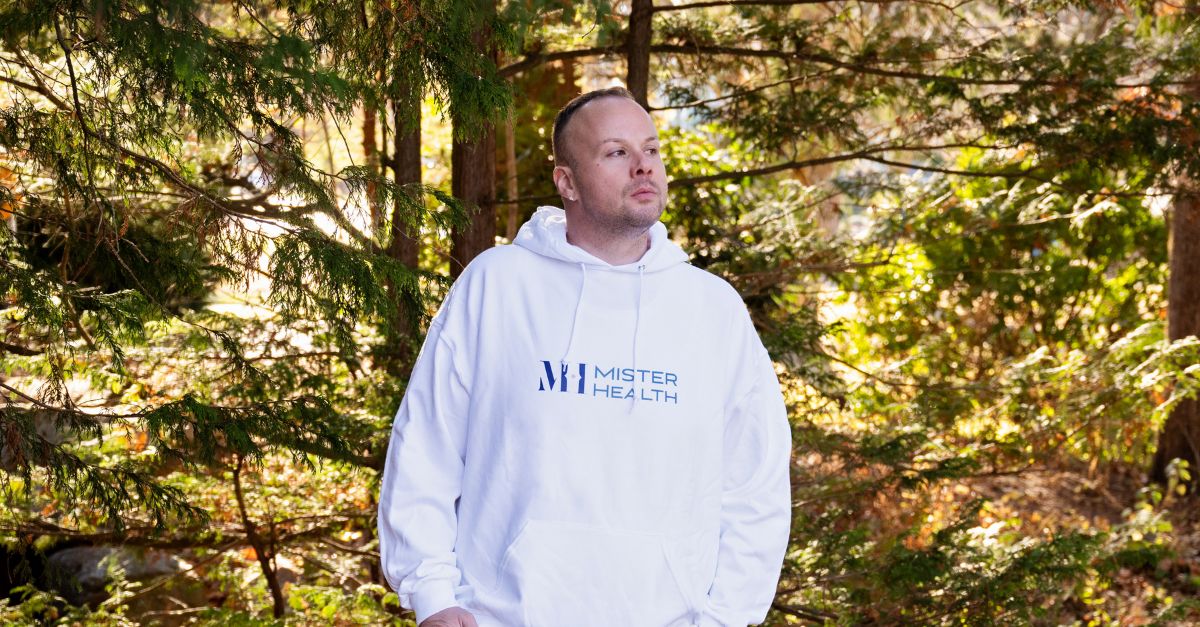What’s the Deal with Porn Addiction and Mental Health?
If you’re stumbled onto this page, then chances are, you’re concerned about your pornography use.
More specifically, you’re worried about whether or not viewing porn has had an adverse effect on your life as a whole. I empathize with anyone reading this who struggles with masturbation, porn use, or any form of sex addiction. These are serious issues that often don’t get the credit they deserve because of how sensitive and triggering they can be.
And yet, pornography and all things sex are a mainstay in American culture. Look at the entertainment industry for crying out loud—books, movies, music, and TV shows all sell sex because they know it works. I’m not necessarily bashing them, just saying that everywhere you go in this country, you can find someone peddling some form of sexual content. So, if you have reservations about your use of porn, rest assured I get it—and you aren’t alone.
In this article, I talk at length about the intersection between porn addiction and mental health, going a little deeper than I did in my piece mostly about porn use (insert link to porn use article when live). Topics covered include:
- What porn addiction is
- Causes of porn addiction
- Porn addiction and the brain
- Signs you’re struggling with pornography addiction
- Porn addiction symptoms
- Ways to overcome an addiction to pornography
Let’s jump right in!
What is porn addiction?
Pornography addiction happens when a person isn’t able to stop watching porn, regardless of their best efforts. Use becomes compulsive, eventually interfering with other aspects such as your personal life, relationships, and work life.
Also referred to as online porn addiction or problematic porn use, if left unchecked, it can develop into more serious problems. More on what those are later.
Is pornography addiction real?
The Diagnostic and Statistical Manual of Mental Disorders, also known as the DSM-5, is the leading text on any mental health issues, used and trusted by healthcare and mental health professionals alike. It doesn’t list porn addiction as an actual addiction.
The American Psychological Association, another leading authority on mental health, doesn’t characterize it as a true addiction either. And yet, according to the APA, the brains of compulsive internet pornography users resembled those of alcoholics watching an ad for a drink when viewing porn .
Porn addiction is one of a handful of recognized behavioral addictions, or addictions that don’t involve substance use. Other examples include gambling and social media usage. It should be noted that the World Health Organization, aka the WHO, recently recognized compulsive sexual behavior as a mental health disorder.
How common is porn addiction?
According to the National Center for Biotechnology Information, or NCBI for short, porn use and addiction are most common among young adult males. In a study conducted in 2019, researchers found that, among young adult men, hypersexual disorders—which excessive use of pornography qualifies as—range between 3 to 6 percent .
The NCBI, an official government entity (you can tell by the “.gov” in the website URL), is part of the National Institutes of Health, receiving funding from the federal government to advance science and health.
By the way, hypersexual disorders, also referred to as hypersexuality, are mental health disorders causing excessive and unwanted arousal. You suffer from uncontrollable and disturbing sexual behaviors, thoughts, and urges. It’s classified as compulsive sexual behavior or a sexual addiction.
Causes of porn addiction
While there’s no definite cause of problematic pornography use, a few things show up more often than others, such as:
- Low self-esteem
- Relationship problems (especially intimate relationships)
- Biological factors
- Unresolved trauma
- Mental health conditions like anxiety and depression
Again, this isn’t an exhaustive list, just one that includes the most common causes I’ve seen among clients.
Effects of pornography use
I’m not one to mince words, so I’ll give it to you straight. Compulsive porn use has a host of negative consequences impacting your overall wellness. In no particular order, some of the effects of viewing pornography excessively include:
- Isolating yourself
- Increased aggression and sexual desensitization
- Sexual dissatisfaction during partnered sex
- Lack of emotional closeness
- Developing unrealistic beliefs about sex
- Poor libido and sexual health
- Low self-confidence or self-worth
- Intensified mental health conditions
- Feelings of betrayal from your partner
- Loss of mutual trust in the relationship
These effects only scratch the tip of the iceberg when it comes to revealing how porn use can detrimentally impact your well-being in real life, not just when you’re in front of a screen.
Porn addiction and the brain
What makes porn consumption so enjoyable? How does it develop from a form of sexual satisfaction to a full-blown addictive behavior? The answer is dopamine.
Dopamine is the chemical that plays a MAJOR role in your brain’s reward center. It’s what makes you feel good, pleased, or satisfied. The dopamine release a person experiences when watching porn is comparable to drinking alcohol or using drugs. In other words, it’s pretty strong.
Mental health issues and pornography
There are a variety of mental health conditions that can co-occur with porn use, meaning they happen at the same time. The more commonly occurring mental health woes include:
- Anxiety
- Attention deficit hyperactivity disorder (ADHD)
- Mood disorders such as bipolar disorder
- Personality disorders
- Depression
- Obsessive compulsive disorder (OCD)
- Post-traumatic stress disorder
Porn addiction can also occur alongside substance abuse, also known as substance addiction, or with substance use disorders. Substance use disorders happen when you persistently use drugs and other substances regardless of any harm or adverse consequences that happen as a result of using said substance.
Sometimes, though, guys decide to watch porn excessively because it helps them cope with their substance use or mental health disorders.
Pornography addiction signs
There are countless signs that someone might be struggling with an addiction to porn. The following are a select few I’ve noticed that present more pressing issues than others.
- Ignoring your daily responsibilities to watch porn
- Your sex life becomes noticeably less satisfying
- You experience feelings of shame after watching porn but continue using it
- Porn causes intimacy and relationship problems
- The porn you consume becomes increasingly more extreme
- Pornography becomes a coping mechanism for the struggles daily life presents
Porn addiction symptoms
Unrestrained use of pornography comes with several symptoms you should definitely pay attention to, such as:
- Uncontrolled urges or cravings for more
- Intrusive thoughts
- Lack of interest in partnered sexual activity
- Sexual dysfunction such as erectile dysfunction
- Isolation or seclusion from others
- Experiencing mood swings or extreme irritation when trying to stop porn use
Since I mentioned stopping porn use, I’d be remiss if I didn’t mention some of the withdrawal symptoms that may occur if you decide to quit cold turkey. Some of the more difficult ones are:
- Insomnia and sleep disturbances
- Loss of sex drive
- Panic attacks
- Sexual aggression
- Stress
- Anxiety
Ways to overcome a pornography addiction

The journey to overcoming porn addiction seems insurmountable, especially after reading about some of the symptoms and effects. I’m here to tell you that despite any feelings of doubt you may have, it is possible to overcome. The following pointers are my medical advice on what to do to start the process of freeing yourself from the hold pornography has on you.
Reach out to SAMHSA
SAMHSA stands for the Substance Abuse and Mental Health Services Administration. SAMHSA focuses on improving the quality and availability of treatment and rehab services across the country to reduce illness, death, and disability. They focus extensively on the societal costs of substance abuse and mental illnesses.
SAMHSA is part of the U.S. Department of Health and Human Services, so they’re a pretty big deal. Those interested in exploring how this organization can help should look over the find help section of their webpage—also a “.gov” website. They provide treatment services, a suicide and crisis line, a veteran crisis line, even a disaster distress line—for starters!
Participate in support groups
Support groups are groups of people with common characteristics, experiences, or problems who meet to provide each other with advice, information, and general support.
These are super beneficial if you want to be around others who share commonalities without having to sit in front of someone you don’t know. Because let’s face it—at the end of the day, not everyone wants to talk about how much porn they watch with a stranger.
Support groups make it easy to open up, learn, and eventually improve. Plus, they’re usually informal, so you can show up as yourself without worries about being condemned or judged.
Seek professional help
I’m all for support groups, but I’d be lying if I said I didn’t see the upsides to enlisting the help of a mental health professional (I am one, after all).
More importantly and specifically, I’m an AASECT certified sex therapist. AASECT stands for the American Association of Sexuality Educators, Counselors, and Therapists. Members of this organization such as myself specialize in treating clients with sexual issues and concerns.
Put another way, I know how to do comprehensive deep-dives beyond what you’d get from a general mental health professional because my work centers around sex health.
Find treatment
Cognitive behavioral therapy, also known as CBT, is a highly effective form of psychotherapy—or communication-based therapy that can help you with a variety of emotional woes and mental health difficulties, helping you function in ways to promote increased well-being.
In other words, CBT helps a person identify any detrimental behavior patterns and thoughts they possess, along with any triggers, so they can change and restructure them for the better.
If that doesn’t sound appealing, seeking out addiction treatment is something that has helped my clients a great deal in the past. Addiction treatment is a personalized process focused on helping individuals stop engaging in the addictive behavior they want gone. It isn’t a cure, but it does help manage the behavior, dramatically minimizing any cravings or urges experienced.
Sexual addictions take many shapes and forms. Whether it’s a masturbation addiction, porn addiction, hypersexuality, or some other sex addiction, I have first-hand experience working with clients in this arena, taking an individualized approach to each session until you walk away confident in your ability to overcome any sex-based struggles. Take the next step in improving your sexual well-being. You deserve a happy sex life—and I’d love to be the one that helps get you there!



